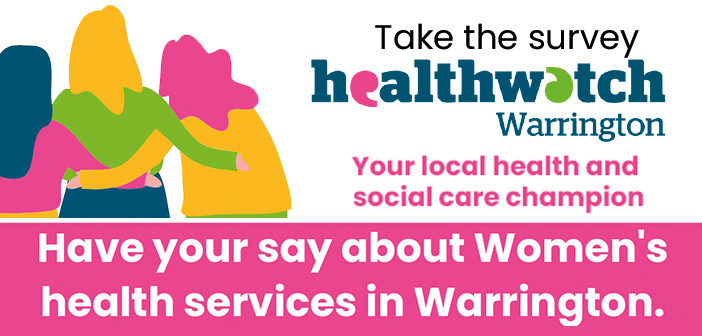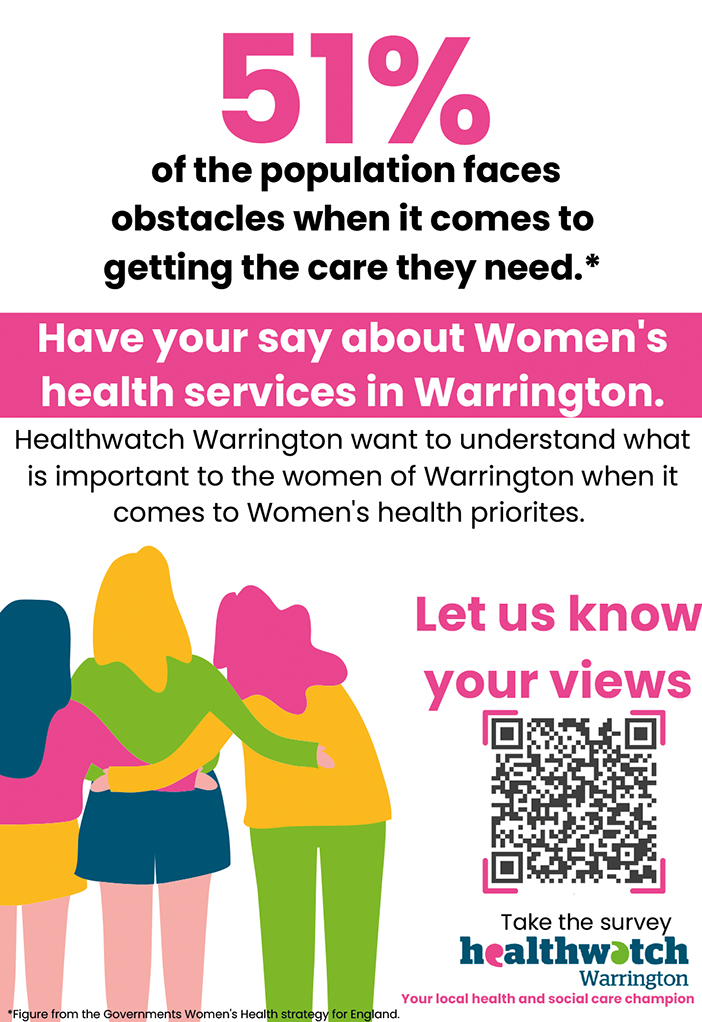LOCAL health and social care champion Healthwatch Warrington is giving women a chance to have their say on Women’s Health Services in the town.
From North to South Warrington and everywhere in between, Healthwatch Warrington makes sure NHS leaders and other decision-makers hear your voice and use your feedback to improve care.
As voted by the Warrington public, one of their main priorities of work this year is Women’s Health.
They have linked this to the National Gov.UK Women’s Health Strategy for England (updated 30th Of August 2022) Department of Health and Social Care. 51% of the population (Women) faces obstacles when it comes to getting the care they need. Although women in the UK on average live longer than men, women spend a significantly greater proportion of their lives in ill health and disability when compared with men.
Not enough focus is placed on women-specific issues like miscarriage or menopause, and women are under-represented when it comes to important clinical trials. This has meant that not enough is known about conditions that only affect women, or about how conditions that affect both men and women impact them in different ways.
Healthwatch Warrington would like to find out what is important to the women of Warrington. Please visit their website to complete the online survey. This is a short poll of four questions, this will help them identify what is important to you and they then can focus their work around areas that you have prioritised.
Contact Healthwatch Warrington to talk about this project or to feedback on any health and social care services in Warrington: 01925 246 893. [email protected]
*A note on the use of language in this article, while in this article Healthwatch Warrington refer to women, they recognise that some transgender men, gender-diverse people, and people who are intersex may be affected by some of the same issues. Healthwatch Warrington also recognise that people who are trans, gender-diverse or intersex have specific needs, experiences and health issues that need addressing. The use of the term “women” in this article is not intended to exclude other groups or overlook the challenges they face.





